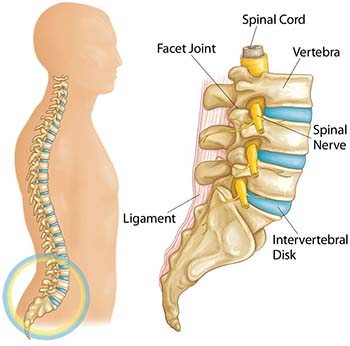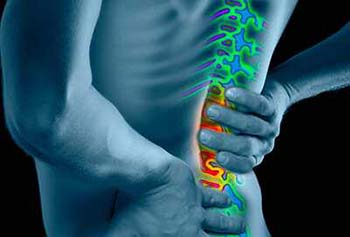- 09:00 AM - 09:00 PM
- Dr.Machani Raghavendra: 994 963 0309

Back pain, often linked to lumbar spondylosis, is a degenerative condition affecting the lumbar spine. This disorder impacts the bones, muscles, and nerves of the lower back, leading to discomfort that can interfere with daily life. At SRS Pain Clinic, we specialize in diagnosing and treating lumbar spondylosis, offering targeted solutions to relieve pain and restore mobility.
The pain may be localized to the lower back or radiate down to the legs, often described as dull, aching, or sharp and shooting in nature. Over time, symptoms can worsen, making activities such as walking, bending, or lifting increasingly difficult. Many patients also experience sleep disturbances due to persistent discomfort. SRS Pain Clinic provides advanced pain management techniques to address both the immediate pain and its underlying cause.
Our team at SRS Pain Clinic offers a comprehensive approach to managing lumbar spondylosis, including physiotherapy, medication, interventional procedures, and lifestyle guidance. By combining medical expertise with personalized care, we help patients reduce pain, improve function, and enhance quality of life—so they can get back to doing what they love without being held back by back pain.


Problem is treated with DRY NEEDLING.
The root cause is treated first. Back function is restored. Muscle strengthening is taught through exercise. Preventive measures are taught and Dos and Don'ts.

Back pain can result from: Poor posture (sitting for long periods, slouching) Muscle strain (lifting heavy objects incorrectly) Herniated or bulging discs (pressing on nerves) Arthritis (inflammation in the spine) Sciatica (pain radiating down the leg due to nerve compression) Osteoporosis (weak, brittle bones leading to fractures) Spinal stenosis (narrowing of the spinal canal)
Dull, aching pain in the lower or upper back Sharp or shooting pain, especially when moving Stiffness or reduced flexibility Pain radiating to the legs (sciatica) Numbness, tingling, or weakness in the legs or feet.
Seek medical attention if: Pain lasts more than a few weeks or worsens. You experience numbness or tingling in the legs. Pain follows a fall, injury, or accident. You have unexplained weight loss or fever. Loss of bladder or bowel control occurs (emergency sign).
Yes, persistent back pain may indicate: Herniated disc pressing on spinal nerves. Spinal infections or tumors (rare but serious). Kidney infections (if pain is on one side with fever). Ankylosing spondylitis (a type of arthritis in the spine).
Maintain a healthy weight to reduce spine pressure. Exercise regularly, focusing on core and back strength. Use proper lifting techniques (bend the knees, not the back). Adjust your workstation to support good posture. Avoid prolonged sitting—take breaks to stretch and move.